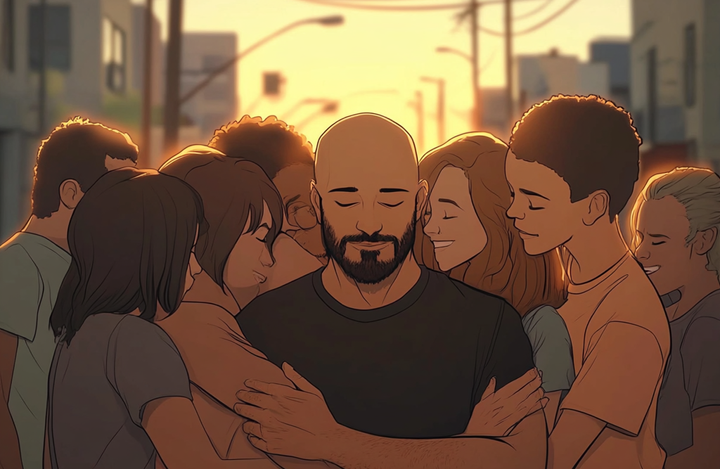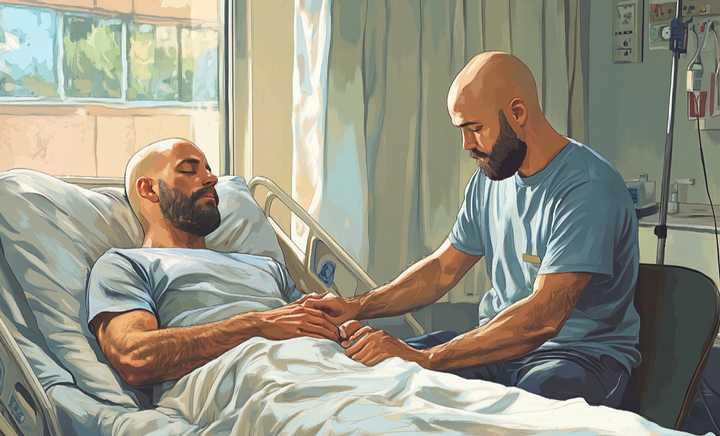The sleeping generation

I try to avoid reading the news from Spain. Since I left, I have the feeling that my country is at a perpetual standstill. The same political quarrels, the same old arguments, the same stale stories, Isabel Pantoja, Catalonia, Lefts and Rights. Nothing really changes.
Today, however, I made an exception, and while having a quick look at the news, one headline called my attention: “I’m 29 years old, and I just want a place of my own I can afford” [In Spanish].
Meet Alexandra
The news tells the story of Alexandra, a 29 y.o. girl from Madrid that can’t find an affordable apartment to live in. She is single, her salary is just 1050€ for a full-time job, and she had to use an app to look for roommates after her family left the apartment to be able to afford the rent, 800€.
The news presents the story of Alexandra as a tragedy and a failure of the system. Upon reading it, the average Spanish Joe is supposed to claim: “What an outrage!”, “How can we allow this?”, and, “Shouldn’t this person be allowed to live in Madrid with a full-time job, working 40 hours per week?”
Well, not really. Madrid and Barcelona are very expensive cities, just as London, Paris, or New York.
The nieces of my husband, who are in their 20s, live in London. They also need to share an apartment, of course. They can’t afford to live on their own with their salaries. Probably they will never be able to afford to rent, let alone buy, an apartment there.
Are we the sleeping generation?
While this is a global issue, it is disturbingly common in Spanish society. And this is mainly due to our culture. Data shows that 64% of Spaniards between 25 and 29, still live with their parents, twice the amount that in Germany or France, making Spain the fifth-worst country in the EU [Source: Eurostat] in that regard. In other countries (such as Italy or Croatia), the situation is even worse.
I knew that I wanted to be a computer science engineer since I was a kid. My father brought me a Commodore-64 because he thought computers were the future (spoiler: he was right), and I fell in love with it. When I left high school, I knew I was going to study Computer Science Engineering at the University of Murcia. Whatever it took. I was ready to have a part-time job and study my ass off to be able to afford it.
Many of my friends also wanted to be developers or computer science engineers. The problem is, we lived in Cartagena. This is just 55 km away from Murcia. That insignificant distance, however, was unsurmountable for my friends. It meant traveling there or (even worse) renting a student’s room far from their families and friends. None of them studied what they wanted. They stayed in our hometown and got a degree in electronics, electricity, or some other thing that seemed vaguely similar. I took the bus every weekday for years (1 hour to get there, 1 hour to get back) and got my degree in Computer Science Engineering.
Myself, I made the mistake of buying a house in Spain. At least, my house was close to the university (where I was working). One of my best friends bought the flat on top of her mom’s, just to live “close to her”. She worked at a hospital almost a hundred kilometers away.
Years later, when working at a cubicle in Madrid, one of my colleagues, in her early 30s, was telling me how badly she wanted to move to her new house. She had bought a house one year ago but was still living with her parents. When I asked why she hadn’t moved already, she mentioned: “oh, there are so many things that I need, you know: lots of furniture, a large plasma TV, this, and that…”. That list stroke me as completely unnecessary. If she really wanted to move to her new apartment, she would have bought a cheap bed, some kitchen utensils, a basic couch, and a table from Ikea. For less than 400€, she could have moved one year ago to her apartment. A 20€ Lack table, however, was not fancy enough for her. She was living with her parents instead and paying a very high mortgage (around 50% of her salary) for an empty apartment.
Our grandparents migrated in post-war Europe. They had less stuff than we do have now, fewer resources, and less information. But they were awake and sharp. We seem to be collectively sleeping. Are we the sleeping generation? When are we going to wake up? Has this awakening started already?
Time for a reality check
The problem is not that Alexandra can’t live in Madrid with her meager salary. There’s nothing broken there. She had access to high education and has a college degree. She has free social security and does not have overly high tuition debts to repay (this is Europe, not the US). You can’t blame AirBnB, or the nefarious real estate owners. You can’t affirm that her employer is an evil person who needs to double her wage so she can afford to rent (or even buy) that apartment by herself.
The problem is our expectations, and the repetition of socio-economic patterns that are already dead. The problem is that Alexandra expects to live in Madrid, an ultra-expensive city, with a degree in Journalism (which, unfortunately, is not one of the most demanded careers in Spain) not even working as a journalist (one can only guess she has a low-qualified job), and be able to afford to rent, or even buy, an apartment of her own.
Let’s be realistic. It’s the XXI century. The ’50s are gone. You can’t expect to do that. Is that wrong? Nope. What’s wrong is the fact that we still desperately try to do that because most of us know no alternatives.

Living in the big city…
The time for megacities that concentrated the economic activity, attracting large populations in search of jobs, has passed. People are not moving to the cities to find a job, they are escaping the cities to be able to enjoy a better quality of life and work in something that’s meaningful for them.
If the pandemic has brought something positive, is the acknowledgment that most of us can live and work anywhere on the planet. Some people (a lot of them) can even work online. We are better prepared than our grandparents, and our world is infinitely smaller.
Fortunately, it seems we are starting to wake up. We are not willing to work like cogs in a machine to enjoy a stressful life, a mediocre salary, and a small, dark apartment anymore. People are even quitting their jobs and starting businesses or changing careers to avoid going back to the situation they were in before the pandemic.
That has the potential of making our lives less frantic and improving our quality of life.
But we need to be able to remove the dust of the XX century. To let go. To grow detached from the cities we live in, our families, our childhood friends (that’s especially hard for Spaniards). We need to demystify our countries and nationalities and embrace the fact that we can move to another city and enjoy a totally new lifestyle. Perhaps Alexandra can rent a house in a smaller city in Spain, or move to Riga and benefit from living in a European capital, or she can go to Rijeka and work online in something she loves in the mornings while enjoying the Croatian coastal sunsets in the afternoons for half the price she pays in Madrid.
Perhaps she can even find a place where she can work as a journalist (supposing that’s her true calling) or start a project where she can make the most of her passion.
Alexandra would be able to live in Sofia in a nice apartment in the city center and pay 250€ per month (less than three times her current rent). If her family no longer lives with her in Madrid, why is she still hanging on there?
Globalization changed everything, but our societies still haven’t caught up. We still cling to the old model of society inherited from the XX century. We live in our countries of birth and move to the big city, just like people did at the beginning of the industrial revolution to work in the factories. A lot of people still seem unaware of the fact that they have choices now. Will the post-pandemic era change that?
Conclusion
You have two windows, and a pillow,
Lali Puna – Two windows
So what do you want?
Off your head, and break a leg.
I was supposed to write the third part of my post series: Why losing 130,000€ made me the happiest man alive, but instead, while reading the Spanish news, I got to this article that inspired me to write about how we complain about reality, but refuse to accept it or change it. How we expect to work in a low-qualified job in Madrid for 1050€ (Like Alexandra) and still be able to afford an apartment in Madrid’s city center. How we are incapable of detaching ourselves from our societies and look for better opportunities or a better quality of life somewhere else.




Comments ()